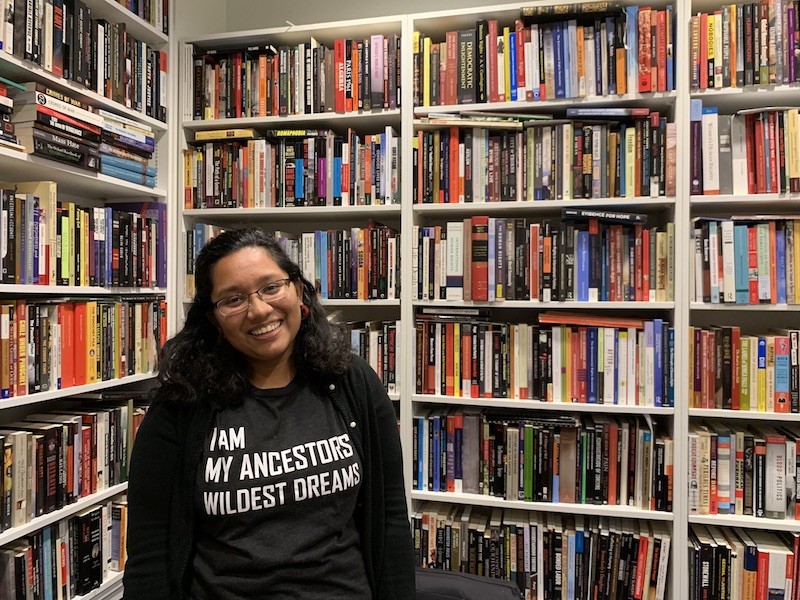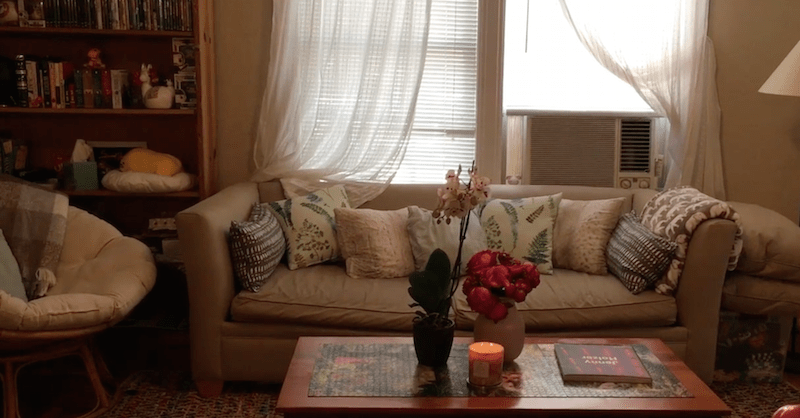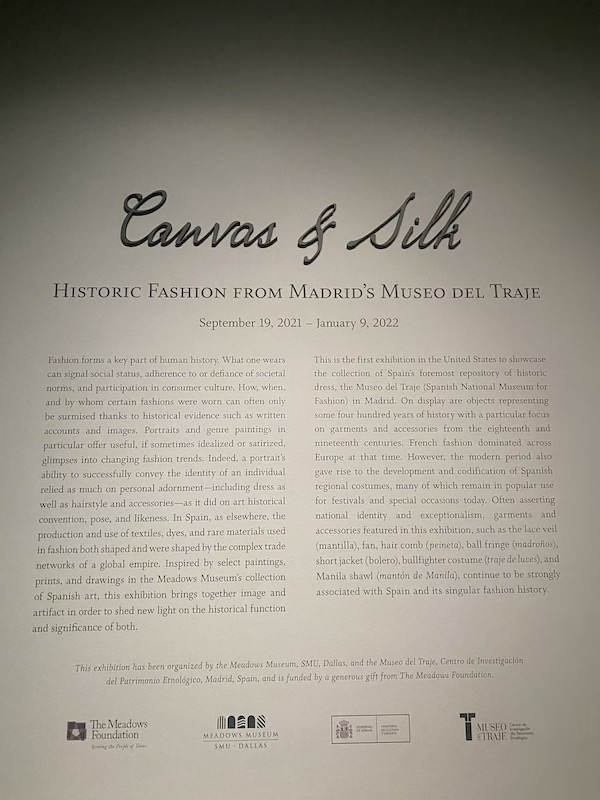Lamisa Mustafa, 20, is a student activist, a Bangladeshi Muslim American and a second generation immigrant from Carrollton. She’s taken on a wide range of projects as a junior triple major in Human Rights, Public Policy and Sociology with a minor in French. She’s published an anthology of poems called “Voices of Resilience”, served on the Advisory Council for University Honors Program, the Human Rights Council, CIQ@SMU, and is the co-president of the Feminist Equality Movement. Mustafa is one of just five SMU Human Rights Fellows and is organizing the first ever North Texas gathering of student activists, called “We the Students,” which will take place in spring 2020. We interviewed Lamisa in her on-campus home base, the Human Rights office.
TL: Why do you do what you do?
LM: I always wanted to be involved with social change. I grew up hearing about educational inequity, in my own family. All of this turned into a turning point for me in my first year of high school. I attended a film screening for a documentary called, “Girl Rising” and it’s about education and access to education specifically for girls around the world. I left that screening feeling sad, mad, angry and also feeling like, “Wow, I have to do more.” I easily could’ve been one of those girls, but education was never a question for me. It’s always been guaranteed, but that’s a privilege in and of itself.
TL: How do you balance your life?
LM: My Passion Planner is my lifesaver! I can write what I need to do every hour of the day, track progress on my to-do list items, and also take notes and strategize on all of the blank space provided. In all honesty though, I am still working on making time for my own wellness in the midst of all of my obligations and responsibilities. Sometimes I just turn off my phone and “go offline” – it’s a way for me to intentionally disconnect and focus on me. I try to remind myself that everything else can wait.
TL: Describe your personal style?
LM: My go to color is blue. Blue or black. A shirt that has a message, like “I am my ancestor’s dreams.” I have one that says, “Phenomenally Muslim” that’s part of the Phenomenal Woman shirt series.
TL: What inspired you to do what you do?
LM: My maternal grandpa was the Minister of Health in Bangladesh. He passed away before I was two, so I didn’t get to know him, but I grew up hearing family stories about him. And that was inspiring to me. I wanted to do something similar. I knew I wanted to be like him.
TL: Describe your journey?
LM: I got involved with the Human Rights forum throughout high school. That’s where I learned about the terminology “human rights” and what it is. My high school was Newman Smith in Carrollton, and so as a part of the DFW area, we knew about SMU’s Human Rights program. I knew the faces behind the program here, so when it was time for college admissions, this felt like a good fit. That’s the only reason I would’ve applied to SMU in the first place because we do have a reputation that isn’t the best, of being a predominately white institution, not inclusive, not accessible financially or otherwise.
TL: Biggest challenge you’ve faced?
LM: SMU was a culture shock for me, even though I came in knowing about the stereotypes. I knew about our diversity statistics, or our “ethnic diversity”, but even having that background knowledge is different than living that out every day. I’ve been in classes where I’ve been one of two students of color in a room. I’m often one of the only Muslims in a space. Anytime you are part of a minority group, you are expected to be that group’s spokesperson.
TL: How is SMU preparing you for graduation?
LM: Human rights are in everything. They affect all of us; all of us have them. So what wouldn’t it [the Embrey Human Rights Program] prepare me for? A human rights education is as simple as, “how do you treat the people around you?” It’s so basic, but also so fundamental.
TL: What advice do you have for first year students?
LM: It’s really hard when I ask or encourage someone to apply, especially students of color or students who belong to marginalized groups, because it’s true that some days are going to suck. That’s a part of the truth and what the daily experience for minorities at SMU will probably be. It takes brave leaders for change to happen.
TL: What’s your favorite SMU activity?
LM: The Vietnamese Student Association sells boba tea every Friday in Hughes-Trigg.
TL: Early bird or night owl?
LM: Both? Neither?
TL: What’s your last meal?
LM: Probably chai and biscuits (toast biscuits). I always have them every morning.
TL: What’s your theme song?
LM: Some Bollywood song. I’ve recently been getting back into Bollywood music because my 13-year-old cousin is into it now.
TL: Who is your celebrity crush?
LM: Alexandria Ocasio-Cortez. Rashida Tlaib. Ilhan Omar. Ayanna Pressley.
TL: What’s your guilty pleasure?
LM: Binging Hasan Minhaj’s “Patriot Act” on Netflix.
TL: Who would play you in the movie of your life?
LM: I don’t know because I can’t name a Bangladeshi, which sucks. I would hope they would at least be Muslim and South Asian.
TL: What’s your favorite hangout or study spot on campus?
LM: My favorite hangout is the Human Rights office. When I really need to get something done, I’ll usually go to the Scholar’s Den or I’ll find a place to chill in Fondy.
TL: How do you take your coffee?
LM: Lots of sugar and creamer.





